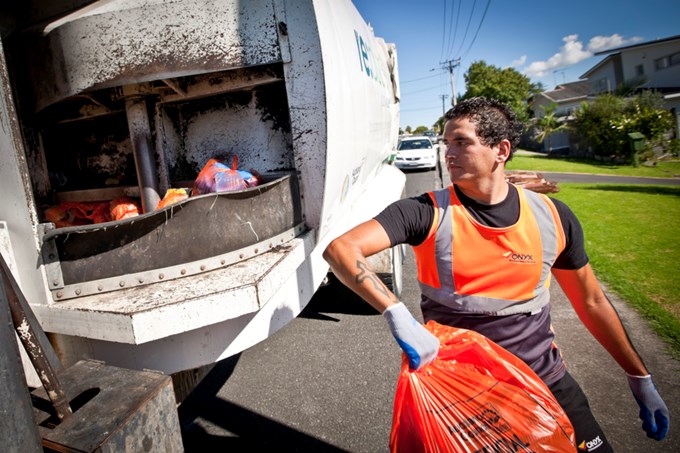The Auckland region sees around 50 million waste collections per year, and the busy summer holidays are no exception.
There have been many changes to waste management over the years, but one thing remains constant – the bins and bags must be collected.
Parul Sood, General Manager for Waste Solutions at Auckland Council, provides us with some insights about how waste is managed during the busy summer period.
“99.96 per cent of the time, everything runs smoothly. Out of around 50 million possible collections a year, there were 20,048 requests from customers related to services last year."
"This is especially impressive when you consider Auckland has six holidays in seven weeks over the summer. Each month, there’s an average of 10,000 tonnes of recycling and 15,000 tonnes of rubbish collected, yet waste volumes fluctuate based on what activities Aucklanders get up to each week.
"Summer is a busy time because people are off work and at home or hosting parties. Last January, there was the equivalent of 114 double-decker buses more waste than usual.”
But, it’s not just a summer spike.There’s also a notable increase in recyclables during big sporting events year round.
“If your collection day is on a holiday or later that week, it will usually be one day later. But if two holidays happen on the same week, as in Christmas and Boxing Day, New Years and the day after, or sometimes during ANZAC and Easter, then collections are delayed by one day for the remainder of the week and are collected on the second holiday.”
“There’s no way around a Saturday collection because there aren’t enough trucks or staff to double up on a different weekday. When Auckland Council was formed there were many different approaches to waste collection. The waste team looked at the results of each method and concluded that collecting a day later during the holidays was the most convenient for residents,” explains Parul Sood.
Environment and Climate Change Committee Chair Councillor Richard Hills shares the appreciation many of us have for the people who are working on Saturdays and holidays throughout the busy summer period to keep our city clean.
“We are grateful to all the workers that continue to meet the high demand all summer long when their friends and family are often relaxing. I am constantly getting good feedback on our reliable service and our quick response if anything is missed.”
Innovations in collection methods are making a positive difference in efficiency and safety. Many rubbish and recycling trucks have a custom technology that helps each worker provide a consistent experience no matter which day of the week or route they are on. Some trucks have onboard computers that can provide the driver with alerts for back roads and harder to find properties, and more than a dozen cameras around the truck monitor every part of the process.
Kerbside bins are safer for workers than rubbish bag collection because there are fewer incidences of broken glass or other hazards. The truck also does more of the heavy lifting. Anecdotal evidence, however, suggests that seagulls prefer the rubbish bag collection method over the sturdy kerbside bins.
Councillor Hills sees a bright future for waste management in Auckland. “Our council has set an ambitious goal to get to zero waste going to landfill by 2040, and that vision guides our decisions. To meet the challenges of the climate emergency we are in, we are working to switch to electric trucks for the kerbside collections and provide new opportunities for every Aucklander to reduce their waste, including introducing a food scraps collection service.”


